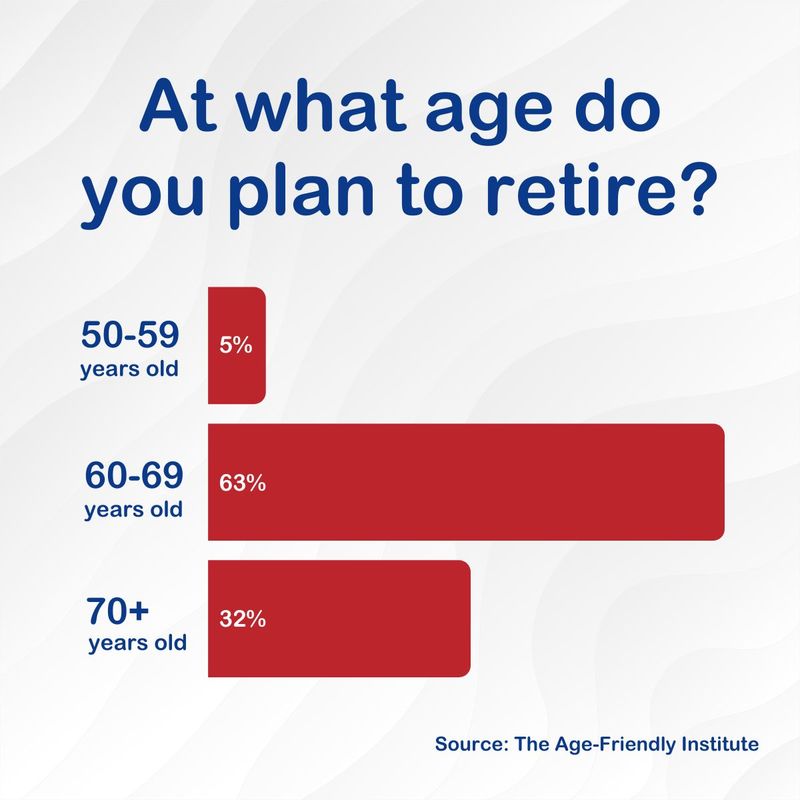More Americans Say They’ll Work Longer
A new Age-Friendly Institute survey indicates Americans are planning to further push out retirement. On average, adults age 50+ who are still working say 68 is their target retirement age.

A new Age-Friendly Institute survey indicates Americans are planning to further push out retirement. On average, adults age 50+ who are still working say 68 is their target retirement age. Over 1 in 3 say they’ll work until 70 or until they no longer can. The average retirement age in recent years has been 62 for women and about 65 for men. New factors are now pushing people to stay engaged in the workforce: from changes to the economy, to the types of jobs available and changing employer attitudes toward older workers.

The nationally-representative sample of 282 individuals reflects several trends.
Changes in the economy, and unforeseen changes in personal economic conditions
2 in 3 respondents said recent changes in the economy have prompted plans to delay retirement. Respondents who plan to work at ages 70+ highlighted the impact of personal economic circumstances such as divorce, being the only source of income in their household and workplace age discrimination. Workplace age discrimination has declined only slightly in the last twenty years, according to other Age-Friendly Institute surveys of older adults, and it remains a complex topic for workers and employers alike. Some cited confusion with how social security works. One referenced learning too late that "my teacher's pension would be deducted from my Social Security, which has canceled any plans I have for retirement."
Types of jobs available
The shift from manufacturing to service-sector employment has made jobs less physically demanding. This enables workers to more easily work during retirement. Older adults are flocking to jobs in customer service, administration and education, such as tutoring. Experts predict major workforce shifts in the coming years. For example, while employer demand for cashiers will diminish due in part to technological advancements such as ubiquitous self-checkout stations, there is a national shortage of caregivers, a type of job not easily replaced by technology and artificial intelligence.
Changing employer attitudes toward older workers
Employers are now more willing to grant flexible work conditions. Flexibility has long been on the wish-list of older adults seeking a phased retirement. “During COVID, employers learned that remote work was not the productivity killer they once feared,” said Tim Driver, President of the Age-Friendly Institute. “Many people in their 50’s, 60’s and even 70’s are saying they’ll delay full retirement up to five years because they know their employer will be ok with them working under these remote and often part-time conditions.”
Health remains the wild card. It is one of the most important factors contributing to the retirement decision. Working longer is perhaps the most effective way for Americans to improve their retirement security, and life expectancy gains that have lengthened the duration of retirement have made working longer even more necessary. But unexpected changes in one’s health can derail plans for even the most planful older adults.
The Age-Friendly Institute’s survey on working longer remains open. Weigh in today with your opinion on working longer and target retirement age.














Interesting survey. One of the big questions for me is how many people over age 50 dropped out of work during the pandemic and have now come back. My observation is that many people continue with purposeful activity and work after they retire from a long-term job. Some of them are doing paid work and others are volunteering. Many are doing a combination. In the past, it has been up to them to figure this out. I am hoping that there will be more options that make it easier in the future.